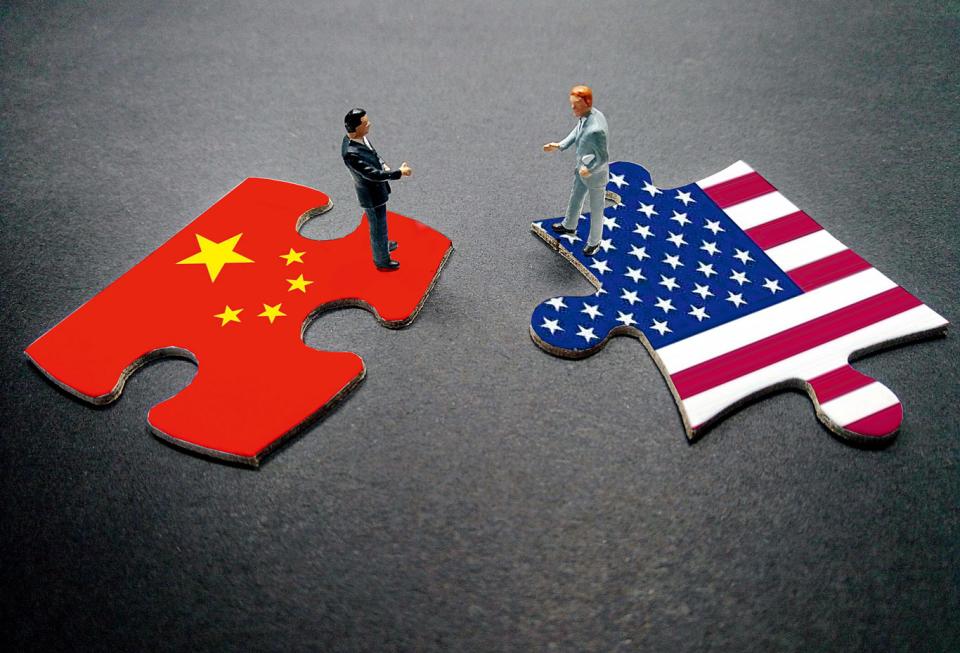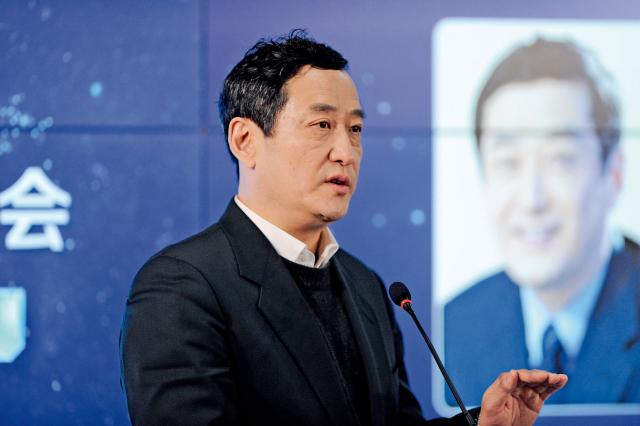In a recent TV debate, Trish Regan, a host on Fox News Business, challenged Liu Xin, an anchor from China Global Television Network (CGTN), on US accusations against China, such as intellectual property infringement, China’s status as a developing country and State capitalism. The video, which went viral in China, apparently reflects negative stereotypes of China, not only held among politicians, but also some of the US public.
However, this was not the case a decade ago when perceptions of China were more diverse in the US. In contrast, Chinese attitudes toward the US are now becoming increasingly complex. This perception gap has contributed to the tensions between the two countries, and is likely to grow if the Trump administration continues to restrict exchanges on all fronts.
Wang Yizhou, a professor at the School of International Studies at Peking University, has observed the trends in the US and China over the years that have led to these shifts. In an exclusive interview with NewsChina, Wang shares his proposal for addressing the problem from a Chinese perspective. As indicated in the title of his recent book, Creative Involvement: The Evolution of China’s Global Role, Wang envisions a China that is a “wise and benevolent power” with a society that is inclusive, innovative and open-minded.
This would lay the foundation for a considered diplomatic policy featuring rational and resilient strategies and a good combination of hard and soft power. Wang stressed this means China should remain and even be more open to the rest of the world, including the US, during this difficult time. It would not only sustain China’s rise, but also improve perceptions of China. During this process, new patterns of competition and cooperation could reduce the risk of the so-called Thucydides’ Trap, an across-the-board conflict between an incumbent and a fast-rising power.
NewsChina: Is there a negative consensus toward China among the public and elites in the US?
Wang Yizhou: I think so. Until about the beginning of the millennium, Americans held many positive impressions of China, with expectations that China would become more like the US. However, worries, vigilance and precautions against China have been building over the past decade. It is not merely a Trump phenomenon. The attitudes of Democrats and many intellectuals, including China experts who have both political and academic positions, have turned negative toward China over the years. Negative perceptions toward China are bipartisan and prevail in US society. They take China as a long-term major rival that challenges the US on all fronts, including trade, finance, security and culture.
NC: Why did this happen?
WY: We need to look back on the trajectories of the two countries over the 30 years since the end of the Cold War. The US entered its golden era in the early 1990s. The former Soviet Union collapsed without a war. The US economy boomed. I was impressed by former US President Bill Clinton’s remarks: “I’m going to focus like a laser beam on this US economy.” However, the world’s only superpower began to make mistakes due to overconfidence. The belligerent administration of George W. Bush waged war in Afghanistan [in October 2001] and then in Iraq [in 2003]. As many Americans complain, the wars created a lot of resentment and enemies which came at a heavy cost. Meanwhile, the US economy was in trouble. Its manufacturing moved to China, India and Brazil, leaving rust belts and unemployment behind. US elites only cared about expanding US power around the world while ignoring the widening gap between races, classes and regions at home. US policymakers talked a lot about building a better life, but little has been done. For example, during his tenure as US president, Barack Obama proposed a high-speed rail network [in his 2009 stimulus bill] that never got support, while Trump [tried to] rescind Obamacare. Complaints against the mess left behind by US military action arose in Africa and Middle East. This is why Obama began his policy of strategic restraint, and Trump is taking it to a new level.
US elites realized that the country had to focus on its own economy and employment again. This is the context of Trump’s “America First” slogan. In the meantime, countries that have done better than the US over the years are now being singled out as scapegoats. China is the largest among them, although US allies, including Germany and Japan, have also been accused of taking advantage of the US. This is not surprising, as 60 to 65 percent of the US trade deficit is with China, according to US calculations, and living standards of Chinese have improved, such as increases in cars and roads. The US believes China has achieved this by unfair practices, including IP infringements and making use of loopholes in existing international trade rules. Over the past few years, China has not only maintained a faster growth rate than most major economies in the world, but also proposed its political blueprint for global governance. This is in stark contrast to China’s low profile diplomacy of a decade ago. In his report to the 19th National Congress of the Communist Party of China in October 2017, Chinese President Xi Jinping announced that China offers “a new option” for development and “Chinese wisdom and a Chinese approach to solving the problems facing mankind.”
Xi has also repeatedly stressed upholding “common values of humanity” to distinguish them from the “universal values” held by the West. All this has been interpreted by Western elites and even some developing countries as China’s ambition and efforts to change the existing global governance system led by the West. Western elites are wary and uncertain about the unfamiliar ideas proposed by China, a country that is representative of Eastern culture that is ruled by the Communist Party of China and looks increasingly assertive. In addition, voices calling for tougher diplomacy have been growing among Chinese elites and in media. Other countries regard this as growing nationalism in China. The arrogant behavior of some Chinese tourists and officials during their overseas visits have also fueled these negative impressions.
The US, in particular, is alarmed by China’s status as the largest trading partner of more than 120 economies in the world and China’s building of overseas military bases, Confucius Institutes and strategic partnerships. China has built strategic partnerships with dozens of countries and regions in the world, which, though not bound by military treaties, amount to having nearly as many partners as the US allies. For the US, this reflects China’s efforts to challenge the US’s global leadership, as Germany, Japan and the former Soviet Union did, and must be stopped.
NC: What are the perceptions toward the US among the Chinese public?
WY: It is interesting to see that while US society has basically reached consensus on China’s position as a strong competitor against US hegemony, perceptions toward the US are very diverse in Chinese society. Many regard the US as the biggest stumbling block. They think the West, on the decline and in trouble, is trying to prevent China’s rise. This mentality is particularly directed toward the US, partly due to the history of how the US has defended its hegemony. Many cited the example of Japan in the 1980s to show how the US would try to beat any close competitor, even if it is an ally adopting the same political system and values. US manipulation is always blamed for China’s troubles in external affairs.
However, many things about the US are very attractive to the Chinese public and elites. Hollywood blockbusters are very popular in China. Silicon Valley, Apple iPads and the Falcon Heavy rocket developed by Elon Musk’s Space X are all hailed in China as icons of cutting-edge innovations which should belong to all of humanity. Many Chinese students want to study in the US, which has the most top-rated universities in the world. Many Chinese consumers like the US lifestyle, with big houses and cars.
In a word, for the Chinese public and elite, the US is both the major barrier to China’s rise and the goal China wants to achieve.
NC: The Trump administration is restricting exchanges between China and the US. What can China do to address this?
WY: It is China’s deep integration in the global economy that has largely underwritten China’s fast growth over the years. China is standing at a crossroad in this difficult time. One scenario is that China chooses to do the same as the US does, blocking various communications and exchanges not only with the US, but also neighboring countries and US allies. This will simply increase the risk of leading to a cold war on all fronts, which could even end up becoming a real war. China will decline in the process. The other scenario is that China remains determined to continue its integration with the world. We can be more open to the rest of the world, including Europe, Japan, less developed countries and even the US. We can invite Apple and Microsoft to set up more research labs in China. We have the world’s largest market. There are so many other countries in the world that we can learn from. Why don’t we learn creativity, good manners and diverse lifestyles from other countries such as Israel, Switzerland and Nordic countries?
In the meantime, we need to continue implementing our reform agenda to further empower our market and society. A big country, be it China or the US, is like a big ship. Problems with its own engines pose more of a risk than the winds and waves outside. Other countries, including the US, will be impressed by a dynamic, decent Chinese society that is eager to learn from others, to innovate and to offer opportunities not only for China’s growth but the growth of others. They will change their perception and attitudes towards China.
NC: Will the US’s negative perceptions and restrictions on exchanges derail China-US relations?
WY: Numerous channels of communication have been built between China and the US despite the ups and downs in bilateral relations over the past 40 years. Elites in countries will at least maintain the lowest level of communication, even with negative attitudes abound. The two countries are part of the same global value chain in which they are still linked through third parties, even if the US tries to cut off bilateral links. When the US sees cooperation between China and other countries creates more business opportunities, they will reconsider its policy and attempts of decoupling from China.
It is true there are many cases of the Thucydides’ Trap throughout human history. However, we should remain open-minded and confident in our abilities to find new patterns of competition and cooperation to avoid this. Chinese people have developed a better understanding of the world in the 40 years of reform and opening-up and are ready to further broaden their views. Even if crisis flares up, for example, over the Taiwan issue or a sudden break in the supply chain between China and the US, both countries would immediately use their contingency mechanisms to mitigate the losses. People learn and adapt. So I am cautiously optimistic about the prospects of China-US relations.

 Old Version
Old Version
